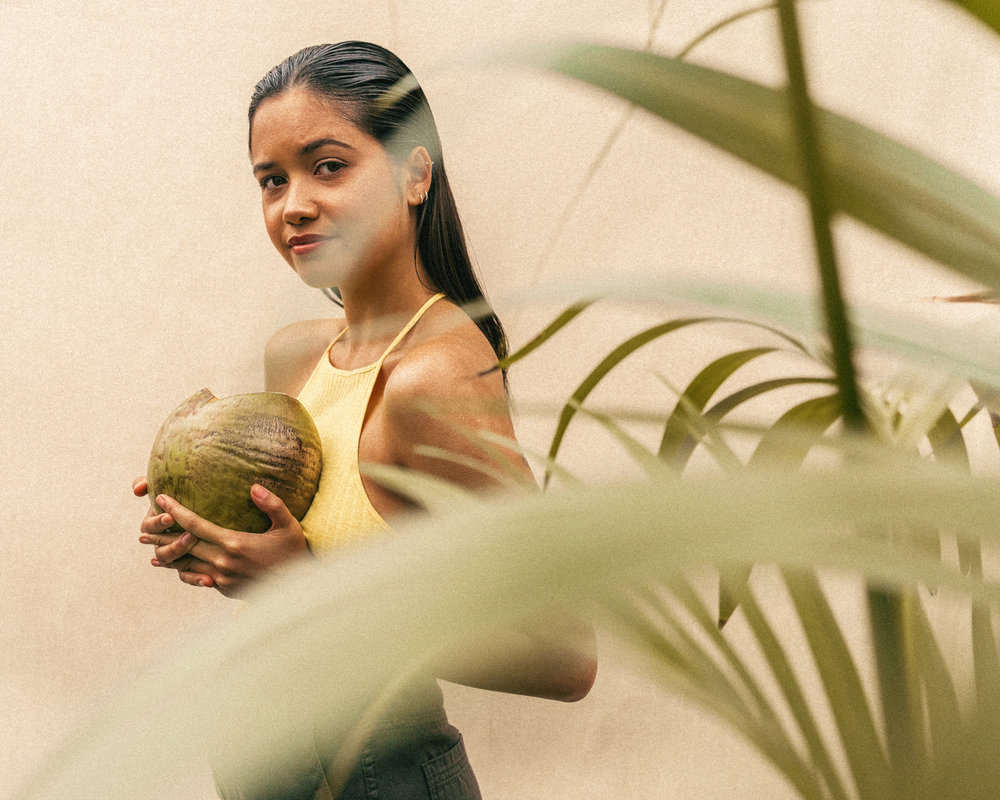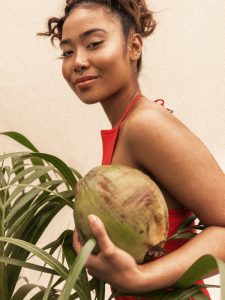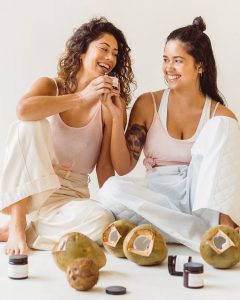
(Bad) Vegan Diaries: don’t sleep on the vegan Filipino-British skincare brand Virginutty
Gisselle Babaran
03 Dec 2018
Image via © Virginutty
I came across Virginutty on Instagram earlier this year whilst on a mission to fill my timeline with vegan food accounts. I thought that by filling my timeline with veganism I would condition my brain to eventually become a plant-based eater myself. Sadly, but predictably, this has not happened yet.
Veganism becomes next to impossible every time I come back home to my mother’s cooking. From my own experience, most Filipinos, especially Filipino elders, do not consider meals complete without the presence of meat or fish. I was therefore excited and intrigued when I came across Virginutty – a London-based, Filipino-British skincare brand that has been marketed as vegan through its exclusive use and championing of Philippine virgin cold-pressed coconut oil (as well as other plant-based ingredients).
Previously, I had never considered the ways in which veganism could manifest in a non-dietary context. As dietary veganism is something I continually struggle with, the prospect of veganism unrelated to diet was something I welcomed with open arms.
I, like many others, chose to veganise my life for environmental reasons – trying, where and when I can, to make more environmentally friendly choices. The same was clear when I talked to Melissa (Mel) Le Garda, the founder of Virginutty.
Image via © Virginutty
Virginutty’s roots are very much a reflection of Mel’s own identity and, as a person of Filipino heritage, this was admittedly an aspect that initially attracted me to the brand. Mel was born and raised in West London by Filipino parents and, like a lot of British-born ethnic minorities, Mel grew up identifying as British.
It was only whilst attending Goldsmiths university in south east London, where questions of identity became increasingly difficult to circumnavigate, that she confronted questions of her own racial identity. As a means of making sense of this, she relocated to the Philippines after graduating.
In our discussion, Mel told me that it was whilst living in the Philippines that her interest in coconut oil piqued. Whilst she was there, she noticed how readily available coconut oil was to the everyday Filipino consumer, appearing in most drug stores. The multiple beneficial uses of coconut oil make it a staple in most Filipino households.
Coconut palms thrive in tropical climates. Because coconut palms grow best in sandy or loamy soils, they are usually found on the coast of tropical regions. Conditions such as these are common in the Philippines, providing an ideal climate for abundant coconut growth. Whilst travelling around the Philippine archipelago, Mel developed a love for coconuts that would, in turn, bring about the conceptualisation of Virginutty.
“Veganism still has its problems – many of the vegan products we consume are not ethically sourced”
The brand’s veganism isn’t even the most explicit way in which Virginutty is environmentally minded. The farms they source their coconuts from use their own waste to naturally fertilise the coconut palms, which reduces their overall production waste.
Albeit comparatively less than the meat industry, in a capitalist context, veganism still has its problems. One of these is that many of the vegan products we consume are not ethically sourced. As much as we should factor in the environment in our cosmetic choices, we should also be conscious of minimising the human exploitation behind the production process.
Much of the problem lies with big corporations underpaying farmers for their produce. According to CNN, 60% of Filipino coconut farmers live below the poverty line. The layers of middlemen who cartelise the prices, as well as the expensive transport and handling costs, leave these farmers with very little.
Many of these farmers are not able to break the cycle of exploitation. Their supply of coconuts cannot meet the increasingly large commercial demands due to the continual destruction and damage of coconut farms across the Philippines.
Unlike most of these major corporations, Virginutty sources their coconuts from fair trade and certified organic Philippine farmers who, according to their website, “receive fair pay and good working conditions”, and whose livelihoods are “protected by community schemes”.
Virginutty create products that are vegan, environmentally-friendly, sustainable, and ethical. Part of the packaging is made up of recycled materials, and the packaging itself is completely recyclable. The products also look, smell, and taste(!) amazing. The products and the ethos of Virginutty is one any environmentalist can get behind.
“The cheap prices of supermarket coconut oils are a reflection of the exploitation that happens”
However, in spite of being environmentally minded, as a student, I could not help but initially feel a little finessed by the price point. To address the elephant in the room – there are other raw coconut oils on the market for considerably less.
This is something that is addressed on Virginutty’s website, but I posed the question again when in discussion with Mel. Firstly, she says the price is a reflection of the products’ premium quality. Virginutty’s website states that they offer the “highest quality, raw (unrefined, unpasteurised), pure, organic virgin coconut oil” to their customers. The same farms that supply Virginutty also supply Michelin-starred chefs.
More importantly however, Virginutty customers pay these prices in the knowledge that these products are ethically and sustainably produced. Mel explained to me that the cheap prices of the coconut oils that are found in supermarkets are, quite simply, a reflection of the exploitation that happens at ground-level.
Also, consumer culture is changing: “People are beginning to shop more and more with their hearts rather than their wallets”. In essence, what Virginutty customers are paying for is transparency on every level – an incredible feat that Mel should be proud of.











